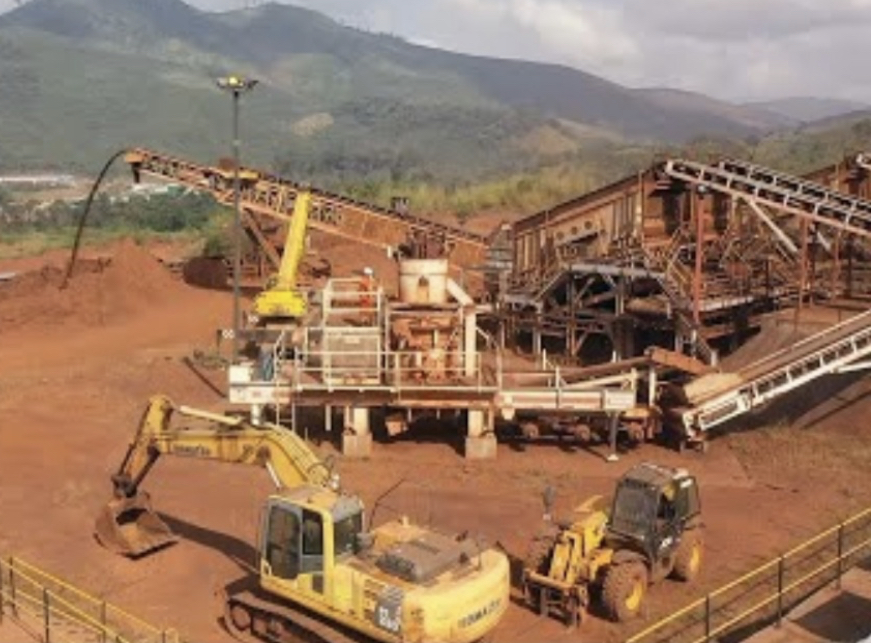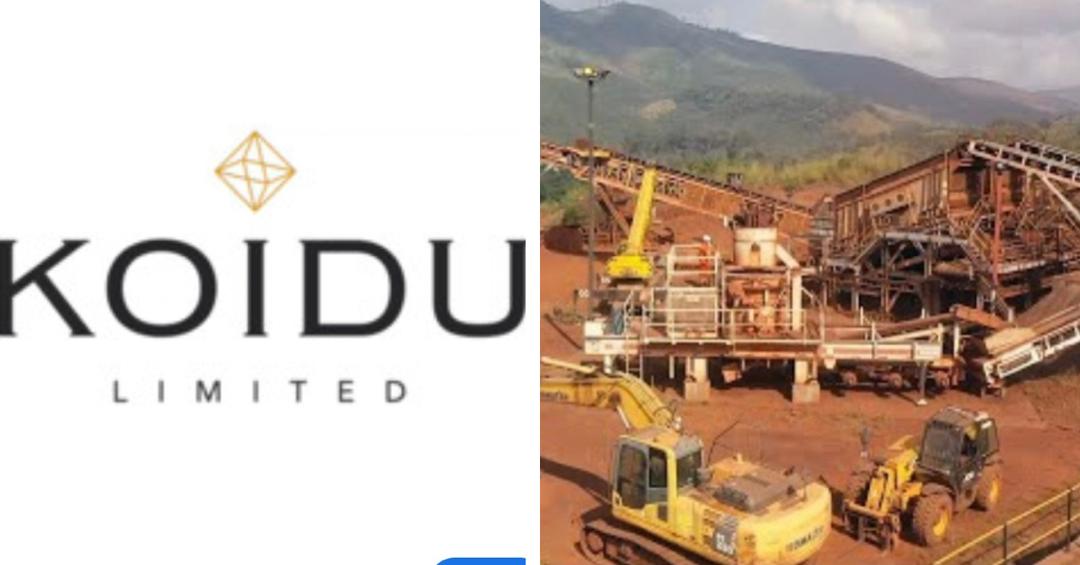In the once-thriving mining town of Koidu, in Sierra Leone’s diamond-rich Kono District, silence has replaced the thunder of excavation. The gates of Koidu Limited — the country’s largest diamond producer — now stand shut, after the company abruptly halted operations in April 2025 and laid off over 1,000 workers. But this is not merely a corporate retreat. It is the latest chapter in a two-decade saga of exploitation, financial secrecy, labor abuses, environmental degradation, and government betrayal — all orchestrated by the Octea Group and its elusive billionaire owner, Beny Steinmetz.
Koidu Limited’s parent company, Octea, presents itself as a key investor in Sierra Leone. In reality, it is a shell empire — a complex lattice of offshore firms and shadowy holdings built to extract profit while dodging taxes, ignoring local obligations, and suppressing dissent.
Since acquiring the mine in 2007–08 through BSG Resources (BSGR) — a Guernsey-registered entity owned by Steinmetz — Octea has come under repeated fire from civil society, labor unions, local leaders, and international investigators. Despite controlling a mine that has at times accounted for over 60% of Sierra Leone’s diamond exports, Octea and its subsidiaries have never paid a cent in property taxes to the city of Koidu, even as they racked up more than $330 million in exports between 2012 and 2015 alone.

A 2016 investigation by the International Consortium of Investigative Journalists (ICIJ) exposed that Octea operates through a chain of offshore entities — from the British Virgin Islands to Liechtenstein and Switzerland, where shell foundations like Nysco and Balda hold ownership. BSGR itself is under scrutiny for bribery and corruption in Guinea, where Steinmetz was convicted in 2021 by a Swiss court for paying $10 million in bribes to secure mining rights.
The shutdown in April 2025 follows months of labor unrest. Workers at Koidu Limited went on strike in December 2024, citing chronic underpayment. They were being paid in Sierra Leonean leones at an exchange rate from 2016, effectively slashing their wages to 30% of their real value.
Union President Charles Kainessie confirmed that workers lacked access to clean drinking water and basic sanitation — unconscionable for a company boasting $100 million in annual exports. After suspending their strike in January, workers resumed industrial action in March 2025. In retaliation, Octea terminated over 1,000 employees and submitted mass dismissal letters to the Ministry of Labour on May 6, 2025.
The company claims it has incurred losses of $16 million and would need $20 million to restart. But such claims ring hollow when weighed against their documented history of evading financial responsibility and manipulating legal structures to avoid accountability.
Koidu’s suffering is not solely corporate in origin; it is enabled by systemic political neglect. In March 2025, First Lady Fatima Bio visited the mining town and condemned the company’s treatment of workers. Her remarks, though commendable, were dismissed by Octea as “false allegations.”
This response mirrors Octea’s long-standing strategy: deny, deflect, and disappear behind legal veils. In 2016, when then-Koidu mayor Saa Emerson Lamina demanded over $700,000 in unpaid taxes, Octea argued that it was a different entity than the one that signed the lease — a legal sleight-of-hand that allowed it to escape civic obligations.
In 2022, local residents, fed up with pollution, cracked homes, and health complications from mine dust and waste, filed a class-action lawsuit. Plaintiffs accused Octea and its subsidiaries of toxic dumping, structural damage to homes, and loss of livelihoods. The case was repeatedly delayed, buried under layers of corporate obstructionism.
Since the mine began operations under Branch Energy — the South African firm tied to mercenary group Executive Outcomes — in the early 2000s, Koidu residents have endured environmental hell. Reports over the years cite a litany of health issues: skin rashes, respiratory illness, gastrointestinal disorders, and high blood pressure. Blasting near residential areas has shattered homes, displaced families, and poisoned water sources.
Despite these grave concerns, Sierra Leone’s Environmental Protection Agency (EPA) has failed to hold Octea accountable, even as mining pits deepened and waste continued to leak into local waterways.
In late 2024, civil society groups called on the Anti-Corruption Commission (ACC) to investigate Octea’s unpaid taxes, questionable contracts, and community fund violations. Yet, to date, no public findings have been released. This silence reinforces public suspicion that powerful economic interests enjoy impunity while ordinary Sierra Leoneans pay the price — with their wages, homes, health, and hope.
Octea’s agreements allegedly included a 5% profit-sharing clause and 1% contributions to a community development fund, but no evidence suggests these promises were ever honored.
Octea’s diamonds sparkle in the windows of luxury retailers like Tiffany & Co. and De Beers, whose supply chains include stones sourced from Sierra Leone. Steinmetz, worth an estimated $6 billion, continues to do business internationally despite his conviction and his companies’ trail of broken lives.
Meanwhile, in Kono, hunger grows where wages once fed families. Schools stand empty, homes remain cracked, and mothers bury children they could not afford to treat for diseases tied to mining pollution.
The time has come for Sierra Leone to take back its dignity — to demand justice not just from Octea, but from all those who enabled and protected it. That includes government officials, local intermediaries, international buyers, and shell operators who benefit from the suffering of one of the world’s poorest populations.
The Koidu mine may have gone silent, but the voices of its workers, residents, and communities must now rise louder than ever.
“They took our diamonds and left us with dust,” said one former worker. “Not even water to drink, and now they’ve gone.”












ChatGPT wrote this
Koidu limited must answer for its violation and it’s degrading treatment of Sierra Leone and Sierra Leoneans. The government of Sierra Leone must not even try to entreat them to stay with this level of disrespect and violations as that would embolden them the more to do even worse because they know no one would dare hold them to account. The government must be firm and uncompromising in its stance to ensure that the mineral wealth of the Kono people really benefits them and translates into development of their communities. And that means the government should go back to the mining agreement, review it, and enforce every clause that should ensure the fair treatment of Sierra Leonean works, Similarly also, the government should strengthen the ministry of labor and other institutions responsible, inorder for them to be able to adequately regulate the operations of the mining companies and force them to adhere to the laws and agreements signed; and failure to do so should lead to serious repercussions for these mining companies and not pampering as we normally see.
To stop all this rubbish from happening is to nationalize our mineral resources, period.
They should be kick out of Sierra Leonean. Our people, 95 % don’t benefit from their own resources that is been mining from the land of Sierra Leone. Let the government take control of everything from them. I mean it. Look what president Ibrahim Traore is saying and doing. His people supporting him and protecting. While negative Sierra Leoneans want to kill their own president and give Sierra Leone to white people or foreigners to exploit the country. Shame on you all !!!!. God will destroy all of you that don’t want Sierra Leone to be peaceful and prosper. God protect our president, our people and our nation. Amen.
I urged HE president Julius Maada Bio to kick them out of this country, that so called mining company is off no use to the people of this country not to mention where it’s looting our minerals.
I hope that with such unfortunate happening should be tolerated by any company. And the other thing is that I’m begging the president to nationalize our mineral resources immediately, enough is enough, 😡
In this case the government also has its own share of the blame, one of the biggest problem why we blame the government is why are they not letting us know the real agreement between those companies and the government? We suppose to know if those contract are genuine, how can an ordinary CEO of a mining company instruct a government minister to sack a fellow minister, this is to tell you that something fishy has been taken place, My Advice to the president HE retired bregadire Julius Maada Bio to nationalize all our GOD given mineral resources and henceforth all mining agreement should be made public.